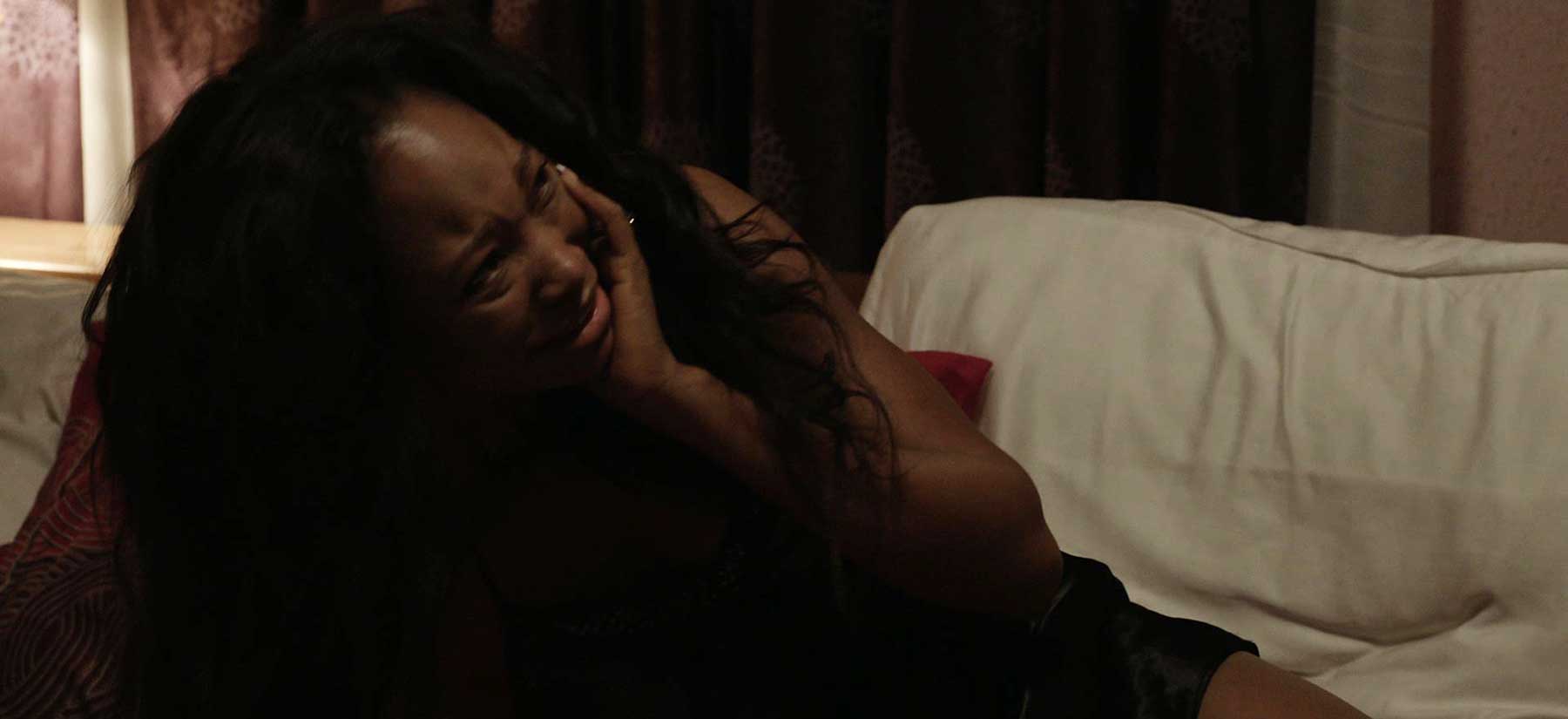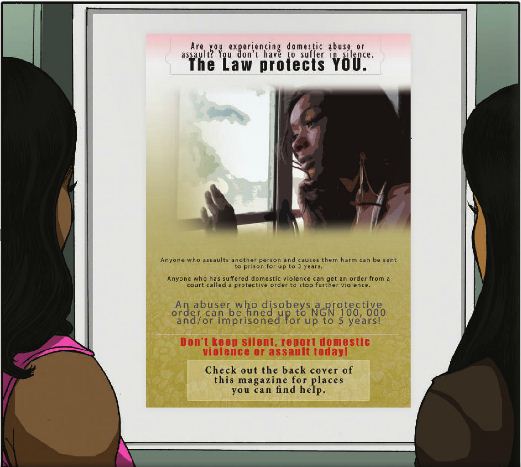Tackling domestic violence
News
13/10/2014

Shuga series 3 or Shuga Naija as we like to call it has a lot of strong sexual and reproductive health messages within the show that reflect the reality of many young people. One of the most prominent storylines is the relationship between married couple Nii and Malaika. The domestic violence that Malaika suffers at the hands of Nii is something no woman should endure.
In Nigeria, 1 in 5 women in a relationship have experienced domestic violence. Experiencing this kind of violence can physically and mentally damage a person.
But domestic violence is just one form of gender-based violence. It’s difficult to distinguish between different types of violence. Gender-based violence can include domestic violence, sexual harassment, sexual assault, and various other forms of violence.
Below we outline what domestic violence is, and look at steps you can take to get help if you are living in Nigeria.
What is Domestic Violence?
Domestic violence is violence between people in a domestic relationship (whether married, unmarried and living together, dating or family members), including physical and sexual abuse, emotional, verbal and psychological abuse such as humiliation or insults, intimidation, harassment and controlling or abusive behaviour.
Domestic violence is against the law under Lagos State’s ‘Protection Against Domestic Violence’ law.
Gather Proof!
If you or someone you know is experiencing domestic violence, collecting evidence is important to prove what happened:
• Record the date and time of every occurrence of violence
• Take photos, record videos, or both of any injuries or damage to furniture soon after.
• If you report to the police or visit a doctor for treatment afterwards ask for a copy of the medical or police report
• Remember to bring family and friends when you visit the police
There’s No Excuse for Domestic Violence!
Domestic violence is the fault of the abuser. Survivors of domestic violence are not the cause of violence. Sometimes victims of domestic violence blame themselves; help them stop blaming themselves.
What is a Protective Order?
If you or someone you know is experiencing domestic violence, they can get help by applying for a protective order from a court. A court can order the abuser to stop committing domestic violence, prevent the abuser from entering the home of the person who is experiencing domestic violence (even if the abuser lives there), and order the abuser to make emergency payments to the person who is experiencing domestic violence to cover rent, food, and other expenses
Who can Apply for a Protective Order?
Anyone who is experiencing domestic violence as well as anyone else who has an interest in their well-being, as long as the person experiencing domestic violence consents. Parents, relatives, counselors, doctors, nurses, social workers, teachers, police officers—all of these people can help by applying for a protective order. No one has to go through domestic violence alone!
What can Sophie do to Help?
Friends and family play an important supportive role in encouraging their loved ones who are experiencing domestic violence to seek a protective order. They should also document domestic violence and give evidence as witnesses in court to help to obtain a protective order.
How do You get a Protective Order?
You can apply on your own behalf or someone can apply for you—you don’t need a lawyer! An application for a protective order is made before a magistrate or state high court. An application can be heard immediately if delay would cause undue hardship (ie, a risk to the safety of someone experiencing domestic violence). There are people who can help you prepare a protective order application—check below for places where you can find help.
Is Someone You Know Being Abused?
With your support, they can take steps to end the abuse and plan for their safety. You should support them by encouraging them to seek medical treatment, report the abuse to the police or get a protective order. You should also help them by accompanying them to the police, court, or hospital.
Below are a few places you can get help. Click on the picture to enlarge:









comments
Log In or register to comment